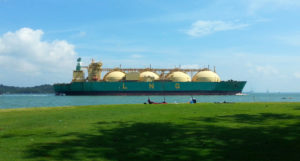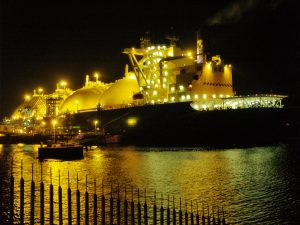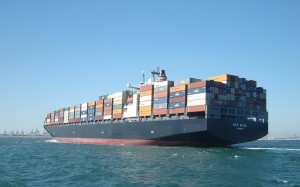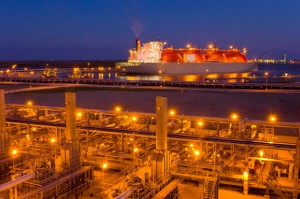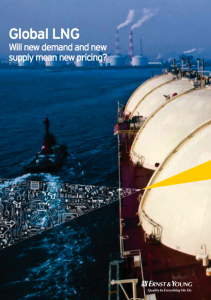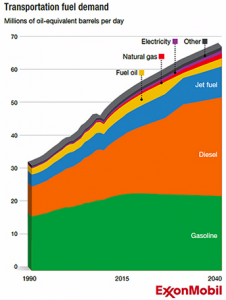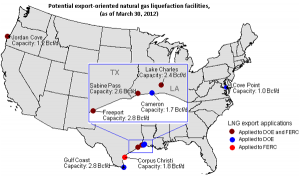10 item(s) were returned.
Member
U.S. House of Representatives
The United States is blessed with an abundance of natural gas and has been a net exporter since January 2018. Thanks to the Trump Administration’s increased de-regulation, we are reaping the fruits of this expanding energy sector. With this increase in energy production, Congress must make proper investments in infrastructure and effectively reform regulations to aid in the export of liquefied natural gas (LNG). To help accomplish this, I and Congressman Michael Waltz (R-FL-06) have introduced the Small-Scale LNG Access Act (H.R. 1836). Senator Bill Cassidy (R-LA) has introduced a Senate companion bill (S. 816), which has two new cosponsors… [more]
View InsightDirector of International Public Policy and Advocacy
Global Innovation Policy Center, U.S. Chamber of Commerce
It’s hard to overstate the growing importance of natural gas in the global energy marketplace, and the scale and mood of June’s World Gas Conference in Washington DC bore witness to the resurgent confidence of the global gas industry. With over two thousand delegates and 300 companies exhibiting in the hall, the conference reflected an industry that feels positive about its future and willing to address issues such as fugitive emissions. In 2011, the International Energy Agency talked about a potential “Golden Age of gas”. That suggestion attracted some derision at the time, as the flattening costs of renewables and… [more]
View InsightThere are over 90,000 cargo ships powered by oil-based fuels that, according to one study, account for 3-4% of worldwide emissions (including SOx, NOx, PM and CO2). In 2012, the International Maritime Organization sparked a series of regulations aimed at reducing sulfur emissions and in January, 2015, a new U.S. rule went into effect that requires ships operating in coastal waters to make further reductions. With an abundance of U.S. natural gas, one potentially cost-effective compliance option is to transition to marine shipping fueled by LNG, however, challenges remain. Supporters of LNG as a fuel source say it will reduce… [more]
View InsightVice President for Policy Strategy
American Gas Association
There is currently no national standard for dispensing liquefied natural gas (LNG) as a motor fuel. In July, the National Conference of Weights and Measures (NCWM) will consider requiring retail natural gas dispensers to use kilograms as the primary unit of sale for liquefied natural gas (LNG). The same regulators and officials advocating for that approach are encouraging that CNG no longer be sold in gasoline gallon equivalents as well. This would be a drastic departure from the current practice of using diesel gallon equivalents (DGE) for the sale of LNG, since it primarily competes with diesel fuel for trucking.… [more]
View InsightChairman of the Energy and Commerce Subcommittee on Energy
U.S. House of Representatives
The House Energy and Commerce Committee recently released a policy paper entitled “Prosperity at Home and Strengthened Allies Abroad – A Global Perspective on Natural Gas Exports.” Over the past year, our committee has analyzed the effects of exporting U.S. liquefied natural gas (LNG) through a series of hearings and an international forum. This report is the culmination of our efforts, detailing the economic and geopolitical benefits of U.S. LNG exports and outlining the actions necessary to realize them. Through our analysis, we found that LNG exports offer the opportunity for the U.S. to improve the domestic economy while providing… [more]
View InsightA recent report by analysts at Ernst and Young predicts that the global LNG market will shift away from its current pricing model, tied to international crude oil prices, to more spot or hub-based pricing. The report, “Global LNG: Will new supply and new demand mean new pricing?” explains that strict oil indexation will become less tenable because “From the global supply side, oil is becoming somewhat scarcer while gas is more plentiful,” thus creating the “inherent conflict of persistently-high oil prices and a growing surplus of natural gas.” More specifically, the report concludes that oil indexation of gas contracts… [more]
View InsightAdvisor
Fuel Freedom Foundation
The recent projections for future energy consumption from Exxon Mobil’s report, “Outlook for Energy,” and the EIA’s “Annual Energy Outlook, 2013” essentially said the same thing concerning the potential for natural gas and its derivative methanol: Natural gas use now is only about 1 percent of the total fuel used in vehicles, and by 2040, it will only rise to 4 percent. This increase will take place in the trucking sector and liquefied natural gas (LNG). Owners of automobiles will not rush to natural gas, because of a lack of pumping stations and the low density of natural gas. Adam… [more]
View InsightLast year, significant growth in natural gas production combined with low demand – due to a warm winter – caused natural gas prices to plummet below US$2 per thousand cubic feet. This benefited consumers, but forced some energy companies to abandon gas drilling programs and put significant pressure on their budgets, most notably Chesapeake Energy Corp. The decade-low prices also facilitated a transition in electric power generators from coal to gas, and in some cases nuclear to gas. However, according to EnergyWire, some analysts, like James Sullivan of Alembic Global Advisors, believe that this short-term electricity fuel transition has maxed… [more]
View InsightNew England is facing a potential shortage of liquid natural gas (LNG) after terrorist attacks on a Yemenese pipeline cancelled shipments to a Massachusetts terminal. Domestic gas could make up the shortfall, but a gas pipeline or export terminals would be needed. Currently, area power and gas companies are working to establish financing for construction of a pipeline expansion, and proposed LNG export facilities are being held up by DOE. New England’s electricity market is a complicating factor in pipeline negotiations. New pipeline capacity would require long-term contracts between suppliers and utilities, and inchoate gas and electric power market rules make it… [more]
View InsightAs American natural gas production continues to increase, the U.S. Department of Energy (DOE) is considering a greater number of applications from companies interested in exporting liquefied natural gas (LNG). At the same time, the Federal Energy Regulatory Commission (FERC) is seeing more applications from companies seeking to build new LNG export terminals and liquefaction facilities. Currently, the U.S. only exports LNG internationally by exporting natural gas imported from other countries, a practice that increased in 2011. So far, nearly all applications to export U.S. LNG to Free Trade Agreement (FTA) countries – eighteen countries including Australia, Canada, Chile, Israel,… [more]
View Insight